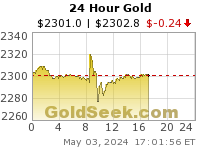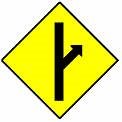During the height of the real estate bubble, I wrote a column saying that the crash was coming and suggested selling any piece of real estate that was overpriced, questionable, or non-performing. As expected, I received angry replies.
Today, I'm predicting the next crash, what I believe will cause it, and why it'll be a severe blow to the global economy. The signs are already here.
Busts Beat Booms
First of all, it's no big deal to predict booms and busts. All markets boom and bust. It's just easier to predict a bust because the signs are so obvious -- like excess euphoria, easy access to money, huge profits, and scores of happy amateurs entering the market.
Booms are harder to predict. They start silently, like oak acorns buried in the ground -- you don't notice them until they're towering trees. For example, few people recognized Microsoft or Google for the giants they were until after they'd become major players and the big profits had been made.
Paradoxically, that means busts are better because we can see them coming. This gives us time to prepare, and makes it easier to capitalize on them.
The Year the Dollar Died
The coming bust started in 1971. That was the year Richard Nixon took the United States off the gold standard, thus converting the U.S. dollar from money to currency -- that is, from an asset to a liability, and an instrument of debt. That was the year the dollar died.
After Nixon was forced out of office, the U.S. economy went into a slump under presidents Ford and Carter. We had high inflation and low growth, otherwise known as "stagflation," before Ronald Reagan and his dedication to supply-side economics -- Reganonomics -- came along.
Reagan cut taxes and started borrowing money, increasing the national debt. As a nation and as a people, we began borrowing and spending to spur the economy. And the economy boomed until 2000...
Read the rest of the article.
Something else that I think needs to be considered:
Chinese inflation at 10-year high of 5.6%
By Sean O'Grady
Published: 14 August 2007
China's inflation rate accelerated to its fastest pace in a decade last month, with prices rising by 5.6 per cent on their level a year ago.
Almost all of the dramatic increase can be accounted for by a sharp spike in the price of food, which has a much higher profile in China than it does in richer western economies. The Chinese are paying 15.4 per cent more for their food, on average, than they were 12 months ago. Prices of pork and other meat surged 45.2 per cent and that of eggs 30.6 per cent. By contrast, prices of clothing and other non-food goods rose just 0.9 percent in July from a year ago.
The Chinese government's chief economist, Yao Jingyuan, said inflation might continue to rise over the next two months due to food-price hikes and he predicted the inflation rate would fall in the final quarter of the year...
... For Beijing the numbers are worrying because China's booming and unbalanced economy may be moving out of its control. China's national income grew by an annualised 11.9 per cent in the first quarter of 2007, and three increases in interest rates in the past six months have failed appreciably to cool output or China's rampant (until very recently) stock markets. Chinese leaders are trying urgently to curb the sharp rise in food prices, which hit the country's industrial and rural poor especially hard (though some farmers are enjoying the higher prices for their produce). Most economists expect Chinese interest rates to rise over the medium term, with the yuan modestly appreciating (and thus easing trade tensions with the US) and inflation moderating...
The world economy revolves around China exporting a multitude of goods at very low prices. More importantly, the United States depends on Chinese financing in order to pay for its ever-increasing expenditures. Rapidly increasing inflation in China could aggravate a very volatile global economic situation in unexpected ways, most likely by making Chinese goods more expensive to produce and export, which could play havoc with corporate profits, as many firms source or manufacture goods in the Communist nation.
Those who invest heavily overseas (like I do), should keep a close eye on China. If there is major economic chaos there, then we in the United States will certainly feel it here.
No matter how you slice it, the Dark Side has fallen. I believe that we are headed for a recession at some point in the next few years; a mild slowdown if we are lucky, or a massive meltdown in the worst-worst case scenario.
It's all about dem Benjamins baby!
Kumogakure, P.F.P.
(Personal Financial Pimpster)


![[Most Recent Quotes from www.kitco.com]](http://www.kitconet.com/charts/metals/silver/t24_ag_en_usoz_2.gif)
![[Most Recent Exchange Rate from www.kitco.com]](http://www.weblinks247.com/exrate/24hr-jpy-small.gif)









1 comment:
I love reading Kiyosaki's articles and his books (especially "Rich Dad, Poor Dad" and "Retire Young, Retire Rich") have opened my eyes WIDE OPEN.
My only problem with him is that he says George Soros is his hero. Huh? Why?
RK understands how the FED, the loss of the gold standard, and government entitlements (especially those geared toward the elderly) are hurting the economy and a crash will come. For the life of me I cannot understand why he looks up to George Soros.
With the baby boomers set to begin retiring next year, the near future does not look good.
Post a Comment